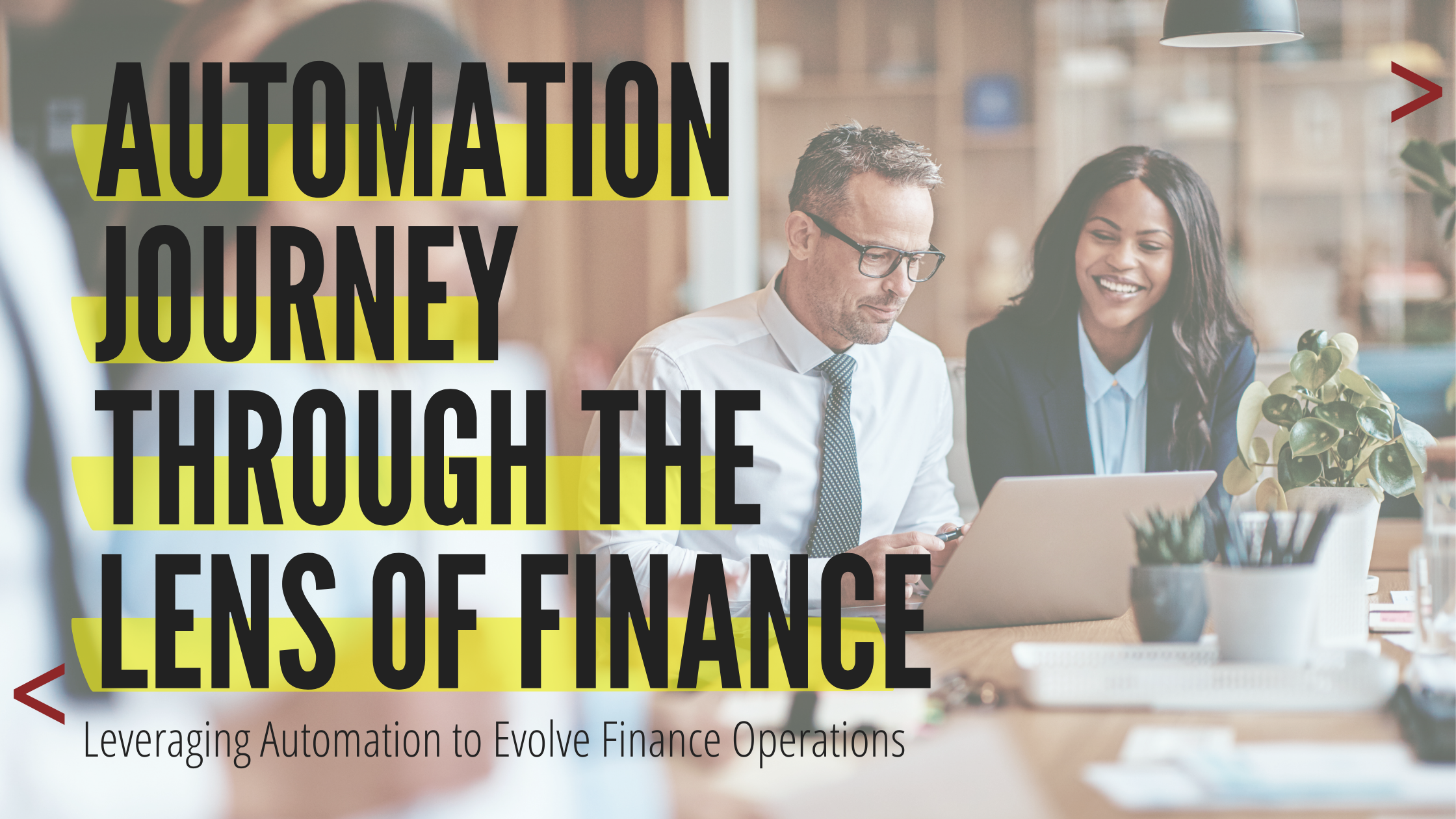Automation to Future-Proof Financial Business Processes

A recent panel discussion presented by Think and Mind Over Machines addressed the issue of bringing automation to financial business processes to spark growth and scalability. Panelists included Patricia Pichardo, IT Business Solutions Director for McCormick & Company; Rob Anderson, Director of IT Finance – Johns Hopkins University; and Claudia R. Wolter, CPA, CCIFP, CCA Shareholder, KatzAbosch.
Moderating the event was Tim Kulp of Mind Over Machines, who opened the event by noting that while automation is regularly considered as a means of improvement for other business processes, it’s not often seen through the lens of finance.
Rob Anderson of Johns Hopkins reviewed his own transition from engineering to finance and the unique perspective offered by that background. Brought on board to modernize a finance group that spans both the university and health systems, Rob’s team is made of approximately 30 finance people and an overall staff of 1,000. Among Rob’s first tasks was to standardize a variety of disparate systems and silos.
The first ‘a-ha’ moment in Rob’s experience at Hopkins was using automation to streamline and standardize an extremely complex procurement process, one that became even more complicated when it involved both the university and the health systems. The improvement made by this change opened the door – and the minds of colleagues – to other opportunities to apply automation.
“Once we tore down those walls, we were able to … succeed in our automation journey,” Rob said. “It is furious and it is unstoppable. Once you enable the talent within your team and around IT, they really run with it and the whole institution sees the benefit.”
McCormick’s Patricia Picardo mentioned the high-level opportunities for automation including resources with the highest demand, solutions requiring quick deployment with minimal errors, and repeatable results that eliminate the human factor. Patricia also detailed the “linear correlation between labor and a problem to solve” and said she looks for opportunities to use automation to reduce dependency on the human factor.
Claudia Wolter of KatzAbosch cited the onset of the COVID-19 pandemic as a triggering factor for automation. She and others had been pressing for processes including the upfront scanning of tax documents as they arrived, but some were reluctant to “let go of that paper” despite the fact that the company had been paperless for nearly two decades. The pandemic and the sudden need to work remotely fueled the change to these new processes.
Claudia further noted the opportunities for automation in healthcare, specifically the telehealth boom, another result of the pandemic.
The discussion continued with Tim posing the question: “Is automation really about the technology or is it about a mindset of how you approach problems?” Patricia responded that both of those are factors, with the technology supporting the mindset of greater operational efficiency. She also noted that finance personnel are often more open to the idea of automation than one might expect, given its ability to increase operational efficiency.
The conversation then turned to compliance, and Rob noted the tug of war between risk-averse financial people and the tendency of technology to “go fast and break things.” Picking up that thread, Tim pointed out that automation should not take humans out of a given process, but should be designed with thought given to where in the process human intervention can help the most, a primary example being the ‘iron triangle’ of security.
Responding to the technology/mindset question, Claudia noted that automation far predates our current technology, going back to the creation of assembly lines. In her view automation is less about the technology and more about the processes, specifically reducing the number of touches on a given part of any process.
Rob made the critical point that in his experience the unique skills sets of finance people make for very good automation-builders. They begin with an understanding of sometime complex financial issues, which are difficult to teach to non-financial types, and also tend to be meticulous and have a thirst for knowledge. Further, some do have an appetite for risk and a willingness to self-teach. All of that lends itself to finding new and better ways of doing things.
Panelists also addressed the challenges of building an ‘automation culture.’ Many fear being replaced by automation, or simply learning new ways of doing things. Claudia addressed the importance of explain the ‘why;’ the reasons behind a given change and the expected improvements it will bring. Rob added that an automation culture first needs to be a culture of trust. His team came to realize that automation helped them to do their jobs better, and from there buy-in on future initiatives became much easier.
